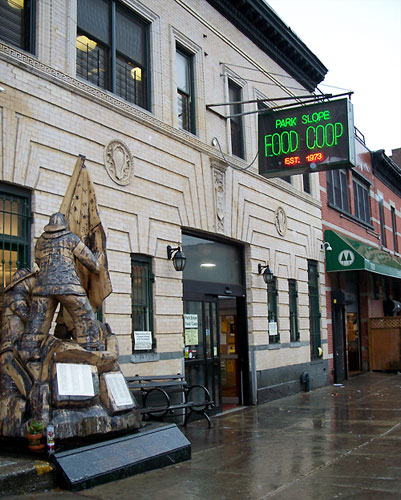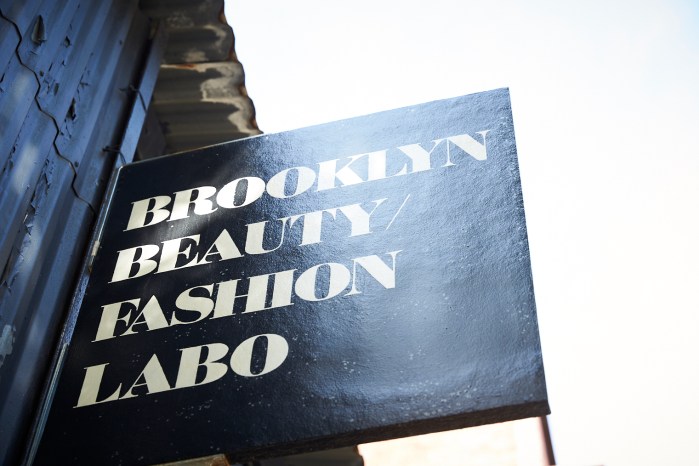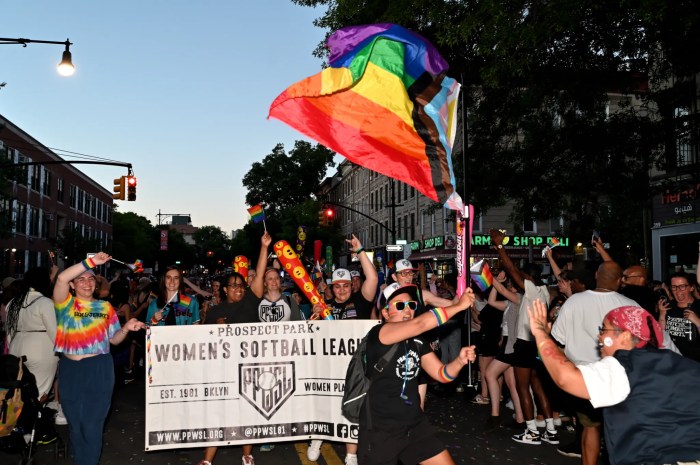The venerable Park Slope Food Coop has fired a shot against the fancy-schmancy Barneys Co-op, saying that the department store slated to open later this year on Atlantic Avenue has illegally coopted the word “co-op” — and one lawyer says the supermarket may actually have a case!
Joe Holtz, the general manager of the famously left-leaning, members-only grocery store, has gone public with his concern that Barneys’ “misuse” of the legal term “co-op” is a violation of state law.
Holtz cited an article in the state’s Cooperative Corporations Law — variously described by two lawyers as “arcane,” “antiquated” and “obscure,” but state law nonetheless — that could possibly serve as a legal basis for a David v. Goliath showdown.
“The term ‘cooperative’… or any abbreviation, variation or similitude thereof, shall not be used as, or in, a name except by a corporation defined in this chapter,” the law states. “Any cooperative corporation may sue for an injunction against such prohibited use of the term.”
Holtz, who made his objection clear in a letter to this newspaper this week, indicated that Barneys’ use of the term muddles the very definition of co-op and, in doing so, undermines the 37 years of effort made by the Park Slope Food Coop to essentially brand the idea of cooperative shopping.
“Barney’s misuse of the word dilutes this effort and effectively undermines our business model and, for lack of a better concept, ‘brand,’” said Holtz.
If found guilty — by whom is not even clear right now — the multi-million-dollar fashion company would face a stiff penalty under state law.
“A violation of this prohibition is a misdemeanor, punishable by a fine of not more than $500,” the law states.
Besides, it’s not clear if the Food Coop will pursue the matter.
“I would say I haven’t decided yet,” Holtz said, but he is definitely considering it — on principle: “It’s a new thing having a co-op in Brooklyn that’s not a co-op. There is something wrong with that.”
A spokeswoman for Barneys, Dawn Brown, scoffed at the notion that their boutique stores is in violation of the law.
“The year 2010 will be our 25th anniversary since opening the co-op,” said Brown. “We’ve been using this phrase for a long time.”
And, Brown added, the term “Barneys Co-Op” — the name that the company gives to spinoff stores of its more-familiar, high-end Barneys locations — is trademarked.
“We’ve gone through all the legal channels to have this name,” she said.
But one lawyer with expertise in corporation law — who did not want to have his name tied to his quick, pro-bono consultation with a reporter on deadline — said that the trademark did not necessarily nullify a Park Slope Coop legal challenge.
“You can’t claim rights to something that is illegal,” the lawyer said. “Can you trademark something that violates the law?”
The lawyer noted that the law in question was designed specifically for food producers, marketers and consumers.
“It’s there so that a co-op corporation — such as the food co-op — not be confused with other corporations such as business corporations,” the lawyer said. “[The food co-op] is a different type of corporation and that’s the reason for the prohibition.”
He also noted that it is quite possible that the reason Barneys has never caught flack for its “co-op” stores before is because no other food co-op has taken exception with it.
“Only a food co-op could bring this case. There might not have been anyone who objected before,” the lawyer said.
But he did say there is one catch: there could be a statute of limitations that nullifies any challenges to Barneys Co-op simply because the term has been used for so long.
It is unclear whether the Food Coop, which serves as a spiritual center of Park Slope, will pursue the matter. This newspaper could not reach Holtz before its non-cooperative online deadline.
In the end, it’ll be up to the lawyers, the judges and the court of public opinion. But consider this: State law appears to be on the foodies’ side:
“It is the declared policy of this state, as one means of improving the economic welfare of its people, particularly those who are producers, marketers or consumers of food products, to encourage their effective organization in cooperative associations for the rendering of mutual help and service,” the law states.























